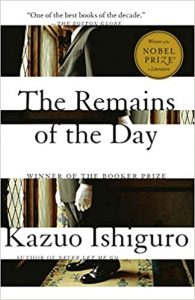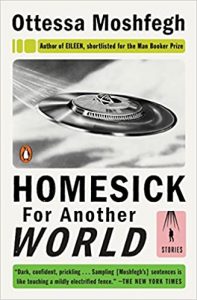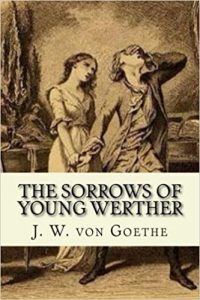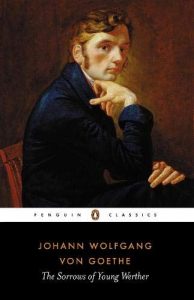While this story on a surface level appears to be the narrator talking about the lengths he went to save his elm tree, in reality, the story is much more personal. It appears the narrator is telling this story as a way to grapple with the fact he is old and will die sooner than he would like.
On the first page of the story, we learn that the narrator has a heart attack; this is an important detail. After revealing this information, the narrator describes the elm tree itself and the problems facing it. While the bugs on the tree are real, they are a representation of the narrator’s fears. He lays in bed at night thinking of these bugs “Vera was gone, and I lay in bed thinking of the insects, of their miniature jaws carrying away heartwood.” ( Canin 3). This level of obsession does not suggest someone thinking impartially about this tree but rather someone who feels a connection to it. The heartwood makes this a slightly on the nose metaphor, but it is still just as powerful. The narrator dreads the decay of his heart, the inevitable failure of his body. Him fighting so hard to keep this tree represents his own fight against his age.
“With it I slapped up and down the trunk until the line was in chaos…. I stamped he stood where they emerged, dug my shoe tip into their underground tunnels. When my breathing becomes painful, I stopped and sat on the ground.” ( Canin 5). He goes about the attacking of these insects like it’s his life on the line, working to the point of causing himself physical pain. This intense is unique because, in the rest of the story, we see him taking it easy due to his heart, but here he works until he reaches a point of exhaustion. This is his fight against death, and he puts his everything into it. In life, he sacrifices not going places with his wife, missing out on the lifestyle he once had. However, all this is useless; this only delays the inevitability. While it helps take some pressure off his heart, it does not take back the condition. The fight against the bugs is useless as well, as the next day they return. This breaks him, and he goes about drastic action.
He puts the bugs in a jar and sneaks into Mr. Pike’s house at night to let them out on his elm trees. This is metaphorically significant because if the bugs represent his heart disorder, he is in a way putting his worse fear on his enemy. He is dooming someone else to the fate he is so desperately trying to fight back against. However, before he can get to the tree’s, he stumbles upon Mr. Pike’s bunker. Upon looking around the bunker, the narrator demeans Mr. Pike’s character.
“I thought of his houses ten years from now, when the pipes cracked, and the ceilings began to pool with water. What a hopeless man he seemed to me then, how small and afraid.” (Canin,8 )
This scene is interesting because he mocks Mr. Pike for being fearful when the narrator himself is full of fear. He is afraid his heart will fail him, yet he was not aware enough to realize at this point in the story. This stops when he comes out and see’s Mr. Pike with his family showing them the stars. This is, of course, relevant to the narrator as his father did the same thing to him, so now seeing this is reminding him of his own youth. This marks a turning point in the story.
At this point in the narrative, the narrator begins to accept that his age is catching up to him. However, this becomes most apparent as he watches the family from the house, saying, “Every so often when they laughed at something on the screen, he moved his hand up and tousled Kurt’s hair. And the sight of this suddenly made me feel the way I do on the bridge across the Mississippi river.” ( Canin 8.). This scene holds a lot of meaning for the narrator. Firstly, it is what leads him to change his mind about letting the bugs loose. He sees Mr. Pike using his youth wisely and knows he wants to wish them no trouble. He is willing to sacrifice his own tree for Mr. Pike. This represents he is willing to step aside for the younger generations. This is also a sad moment for the narrator as this joyful moment is tampered with regret over not having children. He knows it is too late, but this does not stop him from now trying to make the most of his time left. The narrator goes home and speaks to the newspaper boy saying, “I’m an old man and I want you to do something for me. Put down your bicycle and look up at the stairs. “(10.). This is a powerful ending, as in this moment, we see him accepting of his age. It shows by accepting it, he is now able to make the best of his time. Making for a positive ending of this story.




 makes public that which was once private, we still want to avert our eyes from the letters. This is Werther in his true self; these letters are his conversations, both to himself and the people in his life. They were not meant to be read by foreign eyes and that alone makes them powerful. We feel his passion in the words; they practically pore off the pages. There is no wall surrounding his heart, no barrier between himself and the words in the letters. And what do these letters do to us as the reader? We are in conversation with Werther—a literal conversation, in fact, as these are also in response to the ones that he received. The letters themselves are an enactment of Werther’s feelings. They are also a physical form of his central anxiety—his is unable to be with Lotte, the woman who rules his very soul. Perhaps these letters are also an exercise for Werther’s attempt to conquer this anxiety—they are, after all, an obsessive form. Werther shows us the fragility, the complexity, the simple humanity of ourselves. Much as we try to deny it, we cannot separate ourselves from our feelings and emotions. If we didn’t have them, we wouldn’t be human. The human condition is personal, and nothing is more personal than a letter? We might say a diary, but is that not simply a letter to yourself? Werther is not unique in his situation. Love causes much grief and that is the consequence we all must bear. Werther understands that more than anyone, and I believe that he knew it would be the death of him. These letters are writing at its finest—intimate, vulnerable, and honest—and there is no way we can remain unchanged by them.
makes public that which was once private, we still want to avert our eyes from the letters. This is Werther in his true self; these letters are his conversations, both to himself and the people in his life. They were not meant to be read by foreign eyes and that alone makes them powerful. We feel his passion in the words; they practically pore off the pages. There is no wall surrounding his heart, no barrier between himself and the words in the letters. And what do these letters do to us as the reader? We are in conversation with Werther—a literal conversation, in fact, as these are also in response to the ones that he received. The letters themselves are an enactment of Werther’s feelings. They are also a physical form of his central anxiety—his is unable to be with Lotte, the woman who rules his very soul. Perhaps these letters are also an exercise for Werther’s attempt to conquer this anxiety—they are, after all, an obsessive form. Werther shows us the fragility, the complexity, the simple humanity of ourselves. Much as we try to deny it, we cannot separate ourselves from our feelings and emotions. If we didn’t have them, we wouldn’t be human. The human condition is personal, and nothing is more personal than a letter? We might say a diary, but is that not simply a letter to yourself? Werther is not unique in his situation. Love causes much grief and that is the consequence we all must bear. Werther understands that more than anyone, and I believe that he knew it would be the death of him. These letters are writing at its finest—intimate, vulnerable, and honest—and there is no way we can remain unchanged by them. ever, Werther is not innocent in any sense. The story is limited to the letter Werther writes but if the reader pays attention it is easy to see how mentally unwell Werther truly is. His hyper-fascination with Charlotte and pushing friendship onto her and her husband Albert which not only harms them but also harms Werther. The constant strain of seeing Charlotte with another man pushes Werther into becoming even more desperate for Charlotte.
ever, Werther is not innocent in any sense. The story is limited to the letter Werther writes but if the reader pays attention it is easy to see how mentally unwell Werther truly is. His hyper-fascination with Charlotte and pushing friendship onto her and her husband Albert which not only harms them but also harms Werther. The constant strain of seeing Charlotte with another man pushes Werther into becoming even more desperate for Charlotte.